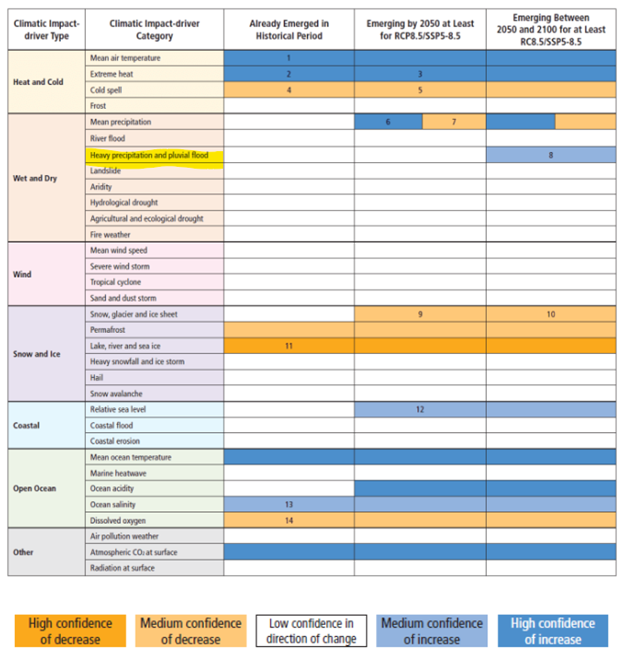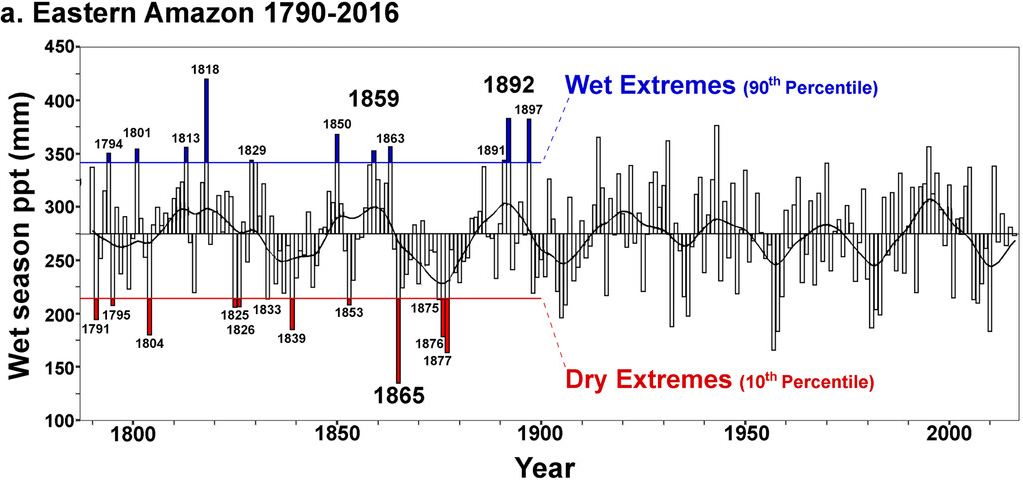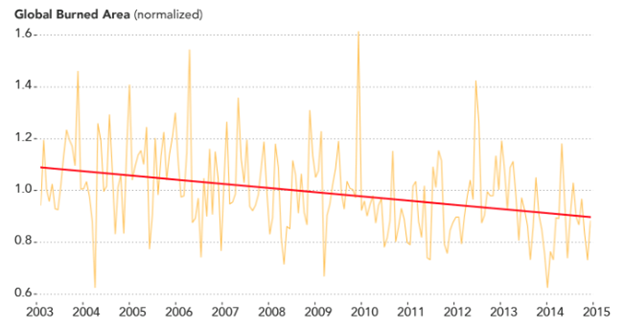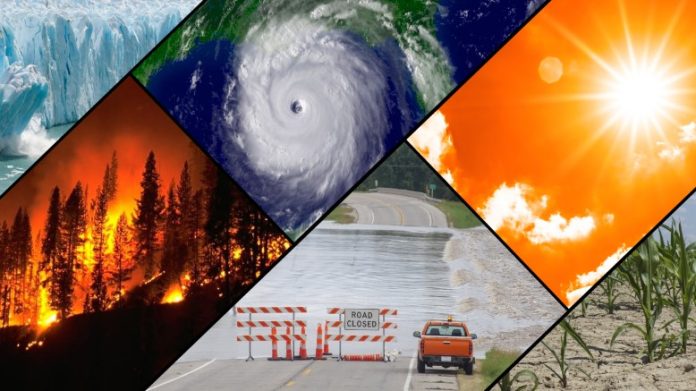A recent BBC article, titled “How climate change worsens heatwaves, droughts, wildfires, and floods,” claims that climate change is linked to four types of extreme weather, specifically claiming it causes: extreme rainfall, worse heatwaves, longer droughts, and more wildfires. Widely available data proves these claims are false. The “evidence” given by the BBC is not evidence at all, as it eschews real world measurements for model outputs and predictions from a single climate activist organization.
The first section of the BBC’s report is dedicated to the idea that climate change causes more extreme rainfall. The BBC presents a very simplistic vision of how the precipitation is related to average temperature, claiming that warmer air can hold more moisture, and therefore heavier rainfall. While the basic physics here is accurate, the atmosphere is more complex than that in reality.
For this section, they relied not on available data, even from the Intergovernmental Panel on Climate Change (IPCC), which show no evidence of increasing intensity of rainfall, but rather the BBC solely referenced counterfactual modelling produced by the World Weather Attribution (WWA) group. Climate Realism very recently explained why, contrary to the BBC’s insistence, attribution modelling is not evidence for climate change’s impact on flooding like that which was recently seen in Dubai.
In that same post, I pointed out that the IPCC does not admit to finding any evidence at all of climate change’s impact on heavy precipitation. (See figure below)

The next section in BBC’s report is no better. This time, the BBC writes “the distribution of daily temperatures shifts to warmer levels, making hotter days more likely and more intense.” As evidence, they point to a recent heatwave in Mali and the Sahel region of Africa… and WWA’s analysis which concluded it could not have happened without “human-caused climate change.”
Again, WWA’s claims aren’t evidence. Many parts of the Sahel region frequently meet temperature maximums on average above 40°C – usually in April– which is what the recent heatwave brought. There is no way to claim that such heat never happened prior to industrialization. This is pure speculation on the part of WWA and the BBC, lacking any facts or peer reviewed research to back up their claim. Once again, this exact claim was refuted in an earlier Climate Realism post, “Wrong, BBC and Reuters, No Evidence Proves West African Heatwave Is Unprecedented.”
Longer droughts, the BBC admits, are harder to link to climate change, but they attempt to do it anyway, asserting that recent short-term droughts in East Africa and the Amazon rainforests were caused by human-induced climate change. The BBC once again relies only on the WWA’s say-so to support its claims, which, once again, are false.
Focusing on the Amazon rainforest, real-world data do not show that the Amazon is becoming more prone to drought because of climate change. There are myriad factors that contribute to recent droughts, such as human causes like deforestation, and increased agriculture putting strain on water supplies. No research or data ties climate change to Amazonian droughts.
Meteorologist Anthony Watts points out that recent studies, including a paper from 2023, show that even worse droughts occurred in 1865, when the planet was cooler, and “several other years in the historical record were as bad or worse than the drought being experienced today.” (See figure below)

NASA tracks the total acreage burned by wildfires since 2003. Their data show a steep downward trend in acreage burned—so, a decline in wildfires, not an increase. (See figure below)

Data from the European Space Agency display the same downward wildfire trend.
This is despite an increase in industry, deforestation, warming, and human encroachment on fire-prone areas, around the globe.
The BBC’s confidence in their assertions is utterly unfounded, and it is telling that they refuse to cite any historical data, instead relying exclusively projections from WWA’s attribution models, which Climate Realism has refuted using historical data and present trends repeatedly, here and here, for example, in addition to the articles cited above. Reality paints a far friendlier picture of the climate and recent climate trends than does the BBC. Instead of attempting to frighten readers, the BBC ought to consider telling the truth.


















The truth doesn’t get near as many upvotes for these influencers who want to make everything look like climate change is happening but instead discredit their own claims. They keep lying and using phony models that have no basis just what the future holds which never gets proven! Pretty much every single case has been unproven and unfounded which means climate change is not the reason!